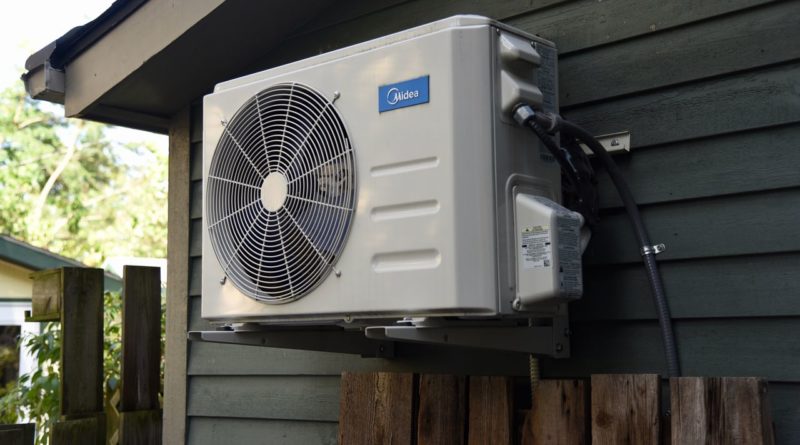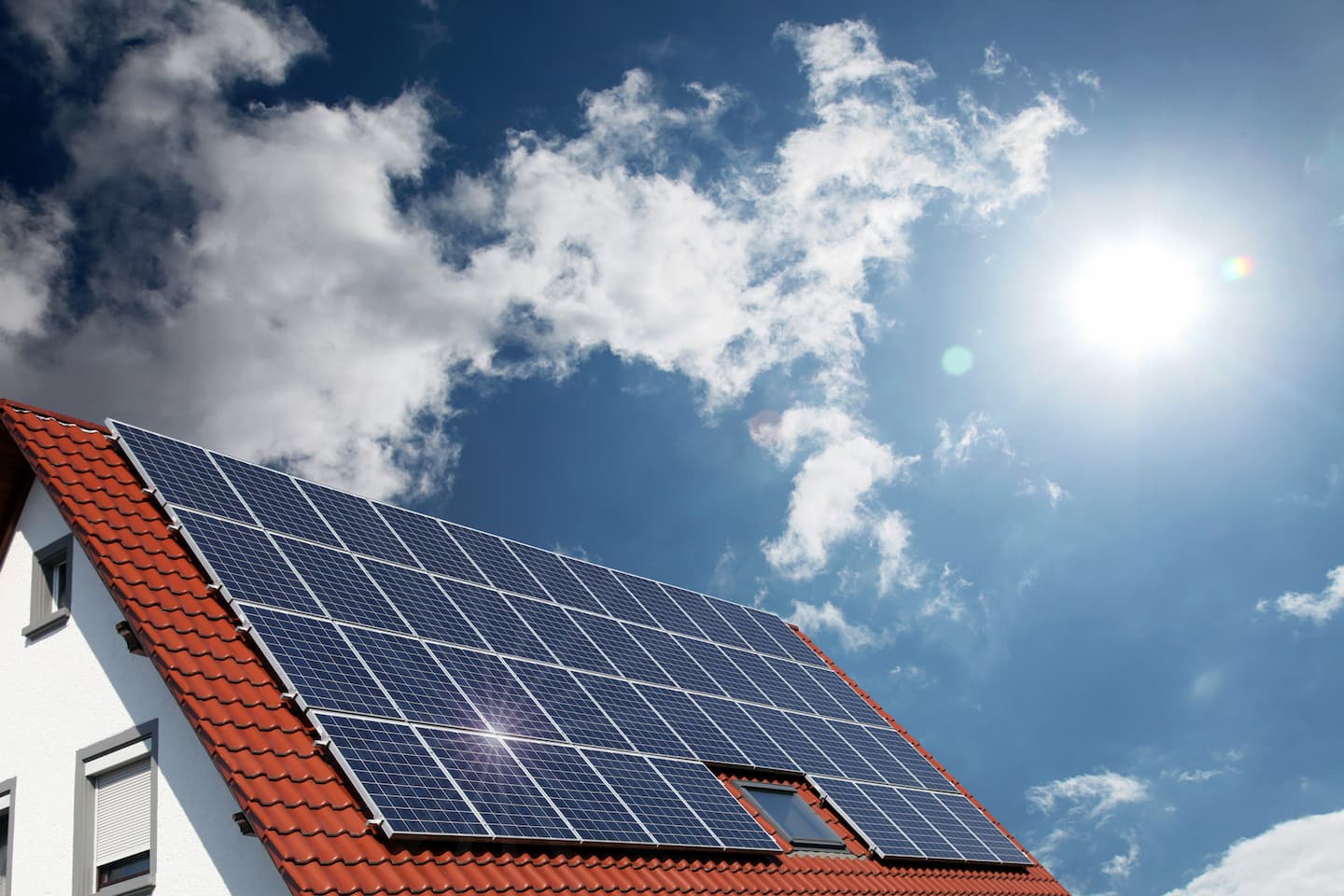Ann Arbor wants residents to get rid of gas furnaces to fight climate change – MLive.com
Energy Disrupter
ANN ARBOR, MI — In its quest to reduce carbon emissions and fight climate change, Ann Arbor is hoping to convince residents to get rid of gas-powered furnaces.
As part of the A2Zero carbon-neutrality initiative to power the entire community with renewable energy, the city is promoting all-electric heat pumps as energy-efficient alternatives for heating and cooling buildings.
“A2Zero is Ann Arbor’s commitment to becoming carbon-neutral in a just and equitable way by 2030 and we can’t get there without talking about electrification,” said Julie Roth, senior energy analyst with the sustainability office.
“We have a big problem in our buildings and that is that we are burning fossil fuels in them for heat,” she said.
The sustainability office hosted a workshop on air-source heat pumps at the Ann Arbor Distilling Co. Wednesday, Sept. 22, with dozens of residents in attendance or watching virtually.
Representatives from Mitsubishi Electric and Rheem Manufacturing, along with the Grand Rapids-based GreenHome Institute, discussed the benefits of heat pumps, along with testimony from residents who have them.
Brett Little of the GreenHome Institute said his group’s mission is to empower people to make healthier, sustainable choices.
“Specifically when it comes to electrification, we’re talking about impacting not just the energy conservation and efficiency and carbon reduction of our homes, but having a healthier home,” he said, noting he made his house fully electric last year and has a Mitsubishi air-source heat pump, which kept his house warm through last winter.
“We were able to pull heat out of the air, and so it was amazing, and so we know it works,” he said, adding it’s resulting in energy savings, especially when used for cooling in the summer compared to his old air-conditioning system.

The air-source heat pump Ann Arbor resident Vicki Honeyman, owner of Vicki’s Wash and Wear Haircuts, uses to heat and cool the old garden shed she transformed into a one-chair haircut shop next to her Murray Avenue home Sept. 24, 2021. “They’re just a really sensible way to heat and cool,” she said.Ryan Stanton | The Ann Arbor News
Little also has a Rheem air-source heat pump for heating water. It works well and there’s no noticeable difference in energy costs or usage after switching from a gas unit, he said.
“The reality is we can’t go totally net zero when we’re burning fossil fuels, we can’t decarbonize, so we have to move toward electrification,” he said.
Mike Schaefer, a Mitsubishi Electric manager, flew in from Chicago to talk about his company’s heat pumps.
Everybody has a version of a heat pump in their home already in the form of a refrigerator, which extracts heat and exhausts it out the fridge, Schaefer said. That’s also what an air-source heat pump does to heat a home, except it’s removing heat from outside air and bringing it inside, he said.
There’s always heat in the air outside, even in the winter, he said, explaining how heat pumps draw that heat energy and use a compressor to transfer it into a home.
“It’s an air conditioner in reverse,” he said.
While typical home furnaces and air-conditioning systems turn on and off, with big energy draws when they’re activated, a heat pump uses an inverter-driven compressor to provide more consistent comfort and efficiency without big ups and downs in temperature, Schaefer said.
Another benefit with heat pumps is homeowners don’t have to worry about carbon monoxide emissions, Schaefer said.
“The downfall to a gas furnace is that — it’s a combustion piece of equipment, so it’s burning gas, it’s burning flames, it’s not safe, it’s not healthy,” he said.
In addition to home fires and explosions from gas equipment, about 50,000 people in the U.S. visit the emergency department each year due to carbon monoxide poisoning and at least 430 die, according to the National Center for Environmental Health.
There are different types of electric heat and heat pump systems that can be installed to move away from gas, including ductless and ducted systems. To heat a whole house in the winter in Michigan, homeowners should install a cold-climate air-source heat pump, Schaefer said.
Mitsubishi’s cold-climate heat pumps provide “extreme heating output” even in subzero temperatures, he said.

An air-source heat pump outside the home of Wayne Appleyard of Sunstructures Architects. The outdoor unit plus two indoor air handlers and one branch box, along with duct work for the system inside the home, cost about $25,000, he said, explaining it was “a bit more expensive” than a simpler system.Wayne Appleyard
Standard air-source heat pumps start to lose capacity when outside temperatures drop below 47 degrees, but they still can be a good option when combined with another heating system or used to cool a home in the summer, he said.
When it comes to energy efficiency, performance ratings for air-source heat pumps can be double, triple or quadruple electric baseboard heaters or electric space heaters, he said.
They’re also much more efficient than any gas combustion equipment, Schaefer said.
For a heat pump with a 300% efficiency rating, that means for every $1 put into it, $3 worth of heat is produced, Schaefer said.
“So, it’s extremely efficient from that end,” he said, adding that’s more than triple the efficiency of the best gas furnace.
“The difference is operational costs that you have to look at, and that’s always driven by utility costs,” he added as a caveat, since gas is less expensive than electricity.
As Ann Arbor eyes move away from gas, DTE Energy investing billions in it
Tim Gaughan, regional sales manager at Rheem Manufacturing, flew in from St. Louis to talk about his company’s heat pump systems, including air-source heat pump water heaters that can replace gas water heaters.
“In the U.S., we’re one of the few countries that have not utilized almost extensively this type of technology,” he said, adding heat-pump water heaters have been around decades.
The environment is changing with global warming and people are becoming more conscious of saving energy, he said, noting the average water heater accounts for 16-18% of a home’s energy use.
“They literally pay for themselves in less than two years,” he said of Rheem’s heat pump water heaters, adding they save $300 to $400 per year in energy costs.
Because they pull moisture out of the air, they also can double as dehumidifiers, he said.
Wayne Appleyard, a local architect who has a net-zero, all-electric home in Grass Lake, has an air-source heat pump for heating and cooling his home. The outdoor unit plus two indoor air handlers and one branch box, along with duct work, cost about $25,000, he said, explaining it was “a bit more expensive” than a simpler system.
Ann Arbor resident Claire McKenna, a building scientist at the University of Michigan, said she’s starting a study looking at the societal impacts of at-scale deployment of residential heat pumps, including potential costs as utility companies respond to the higher electrical loads.
While air-source heat pumps were the focus of Wednesday’s workshop, ground-source heat pumps such as geothermal systems that tap into the earth’s energy to heat and cool buildings may be a focus of another workshop, Roth said.
In the meantime, the sustainability office is directing residents to the GreenHome Institute’s YouTube playlist to learn more about heat pumps and how to electrify a home. In addition to furnaces and water heaters, the city wants residents to replace other gas appliances like stoves and dryers with electric models.
MORE FROM THE ANN ARBOR NEWS:
Ann Arbor aims to lead by example while promoting sustainable, plant-based diets
Ann Arbor residents tell city to ‘implement a better system’ for flooding
2 candidates hoping to lead Ann Arbor city hall discuss diversity, police oversight
Ann Arbor dogs can be labeled dangerous if they ‘provoke’ others under new law
A sorted affair: How Michigan Stadium waste gets recycled after a home game
Original Source: https://www.mlive.com/news/ann-arbor/2021/09/ann-arbor-wants-residents-to-get-rid-of-gas-furnaces-to-fight-climate-change.html
















